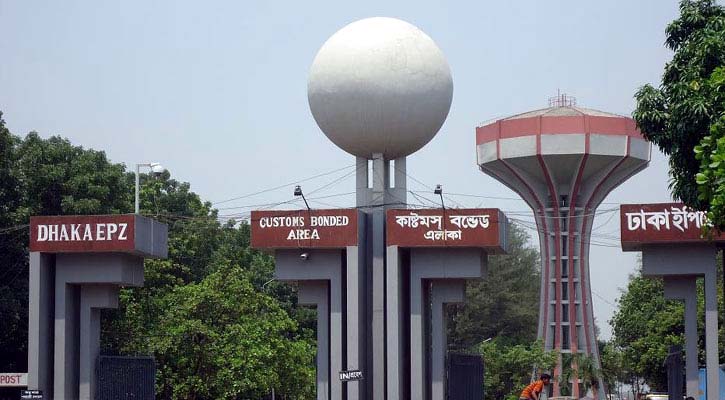EPZ firms await easy cargo container rules

The National Board of Revenue considers easing rules and procedures for investors in the export processing zones to promote trade and investment, said officials.
Firms located in the EPZs may be allowed to use for exports the same containers by which they imported raw materials to make finished products -- a move that will save both time and cost.“We have already formed a committee in this regard,” said a senior official of the NBR.
The decision came after Japanese companies raised the issue at a meeting with the top officials of the revenue board recently.
Representatives from the Japanese embassy in Dhaka, Economic Relations Division, Bangladesh Investment Development Authority, Bangladesh Export Processing Zones Authority (Bepza) and Bangladesh Bank were present, according to minutes of the meeting held on November 26.
At the meeting, Japanese investors at the EPZs raised the issue of bringing utility to container use.
At present, investors in eight EPZs have to deliver containers empty for customs’ checks after importing inputs in those. They cannot send finished products for exports in the same containers because of the customs procedure, which bars full or round use of containers, consuming time and increasing costs, said officials.
The Japanese side requested the NBR to allow the round use of container, according to the meeting minutes.
At the event, the Japanese investors said there was no restriction in the customs (export processing zones) rule 1984 regarding export of products through the same containers used for imports. Based on the request, the NBR decided to form a two-member panel headed by its member for customs, export and bond.
The committee has been asked to prepare a detailed procedure for round use of containers after examining existing rules and regulations and submit the report within three weeks. “This is a good proposal,” said the official, adding that use of containers for export after import would facilitate faster trade.
In addition, the NBR decided to increase to three years from existing two years the validity of bonded warehouse licences before they need to be renewed for all industries in the EPZs. Availing a bonded warehouse licence, investors can make duty-free import of raw materials to make final products for exports.
At the meeting, the Japanese investors also raised an issue over the difficulty in disposing of old machinery and cars in the EPZs.
“Even if the process for disposal is done, it is required to pay tax according to invoice price for disposing. Many factories are forced to leave the old machinery inside their plots,” said the meeting minutes. The NBR decided to form another committee to examine existing procedures and suggest new ones for easing the process of disposal of old and used vehicles and machinery.
At present, nearly 480 enterprises are in operation in EPZs, which together account for nearly one-fifth of the total annual export receipts of Bangladesh, according to official data.
